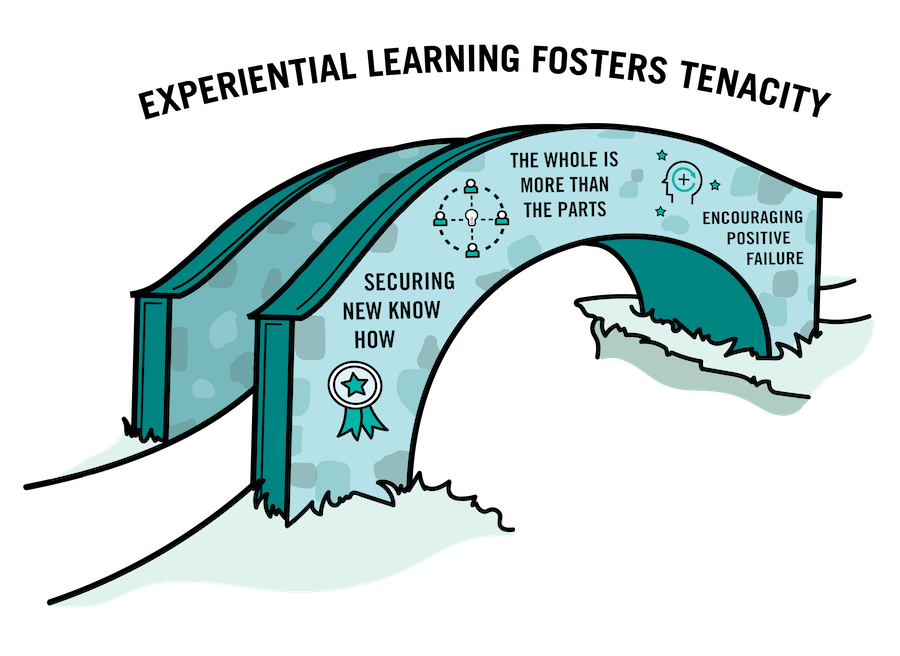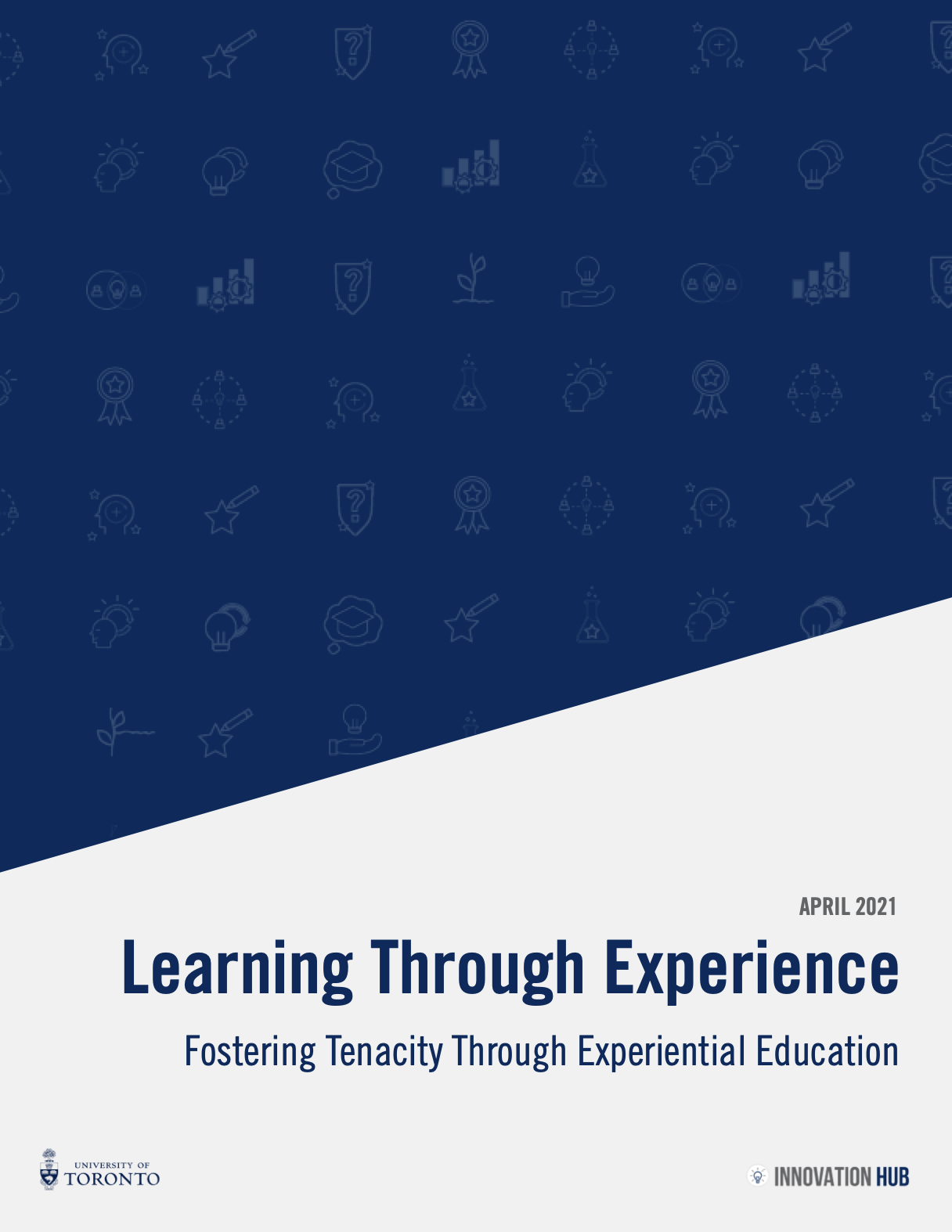Learning Through Experience: Fostering Tenacity
The 'Learning Through Experience: Fostering Tenacity through Experiential Education' project sought to gain a deeper understanding of student experiences in Experiential Learning opportunities and their own unique needs and perspectives. This projects aim was to support and complement the critical work being done on Experiential Learning around the university, such as the development of the Experiential Learning Hub and further efforts to support students, instructors, and staff in making EL excellent at UofT.
KEY FINDINGS
Through our data, we learned that the key to Experiential Learning is fostering tenacity.
When Experiential Learning stakeholders foster tenacity in students, in themselves and in the process, they learn through novelty, interdependence, and positive failure, leading to not only more tenacious stakeholders, but a strengthened approach to learning and education at the university.
We found that fostering tenacity was organized under three themes:
- Securing New Know-How
- The Whole is More than the Parts
- Encouraging Positive Failure

Securing New Know-How: involves the need to recognize the newness that comes with learning experiences for students, instructors, and the university as they move out of the classroom into novel learning spaces that require different—often new and unrecognized—skills.
The Whole is More than the Parts: addresses the need to foster relationship-, partnership-, and connection-building in the learning process, which requires working with others, whether that be students working on teams or instructors and staff working with workplace- or community-partners.
Encouraging Positive Failure: suggests that learning involves taking risks, sometimes making mistakes and failing, and working through the uncertainty and discomfort to foster determination to try again and learn to do it better.
